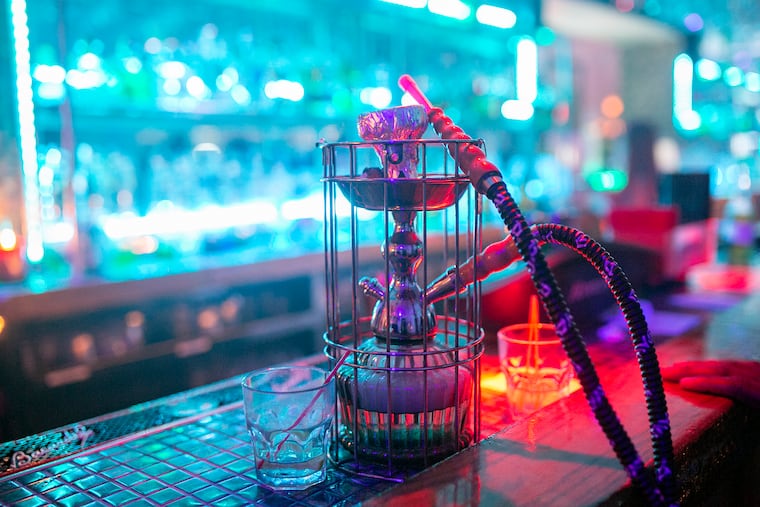Changes to hookah regulations unfair to small and minority-owned businesses | Opinion
A new law makes it harder to open hookah bars outside of Center City, blocking entrepreneurs especially in Latino and other immigrant communities.

The long arm of the law just got longer. Last month, City Council passed a bill that effectively limits the rights of Philadelphia entrepreneurs. The bill, which prohibits or strictly limits use of property outside of Center City as a lounge for hookah or other types of smoking, was signed into law by Mayor Kenney on Dec. 30.
When Councilman Bobby Henon introduced the new zoning law last June, he made clear that it targets hookah lounges outside Center City, where most hookah lounges are found — 81% of the 26 licensed lounges in Philadelphia are outside the Center City districts.
The law requires property owners outside zoning districts CMX-4 and CMX-5 (primarily located in the Center City District) to obtain a variance or a special exception to use their property as a hookah lounge — making it much more difficult to establish such businesses where they are most likely to be.
The law is bad for business. It disparately impacts Latino and other minority communities, and diminishes the city’s reputation as an embracer of inclusivity. Business owners in North Philly, especially Latinos, believe offering hookah is essential to attract and keep customers. This law makes it more difficult for entrepreneurial Latinos — as well as Middle Eastern entrepreneurs, who have established lounges in other neighborhoods — to use hookah to drive business in their communities outside Center City.
While the physical distance may be short, the psychological and cultural divide between downtown and the neighborhoods seems insurmountable to many who are cut off from information, resources, and experiences that those of us closer to the center often don’t notice we have.
Entrepreneurs seeking to open or expand a hookah lounge in their own community now face navigating complex rules on their own, or paying a zoning lawyer. They must apply to the Zoning Board of Adjustment for a special exception or variance, convince neighbors to sign a petition, meet demands of community organizations, which may require expensive architectural drawings and impact studies, and ultimately demonstrate to the ZBA why an exception to the new law should be granted.
In Philly, hookah provides a gathering place for Latino and other communities to meet with family and friends, share a meal and conversation, or dance to the beat of salsa, merengue, or bachata. Latinos are serial entrepreneurs with growing economic impact nationwide. The growth rate of Latino-owned businesses has outpaced that of all other groups, according to a report from Stanford University. We should be catalyzing this growth in Philadelphia, not inhibiting it.
Defending his bill, Henon has tarred such establishments as “out of character” and “disruptive." He claimed of hookah bars in his Northeast district: "We’ve had somebody shot, we’ve had somebody run over, we’ve had numerous police incidents at every single one of them.”
Illegal behavior is not unique to hookah lounges and should be curbed with the many generally applicable laws already on the books. Hookah and non-hookah establishments alike are already penalized for violating existing codes, and the unruly there already encounter police officers enforcing existing laws. We should be working to reduce the tangled mess of legislation under which we are governed, not add to it.
By limiting by-right hookah use to Center City, and requiring special exceptions and variances outside it, the law creates a legislative wall entrepreneurs now have to scale and clear to establish a new hookah lounge. Such aspiring small-business owners will now have to decide if it’s worth the cost and uncertainty of fighting City Hall.
The law goes too far in design and effect, stunting small business growth and job creation in communities that need it most.
Eric Diaz is cofounder of LareDiaz, a minority-owned business law firm. He focuses on real estate transactions and supporting small businesses and entrepreneurs through his firm, and the Latino Small Business Roadshows sponsored by the Greater Philadelphia Hispanic Chamber of Commerce.